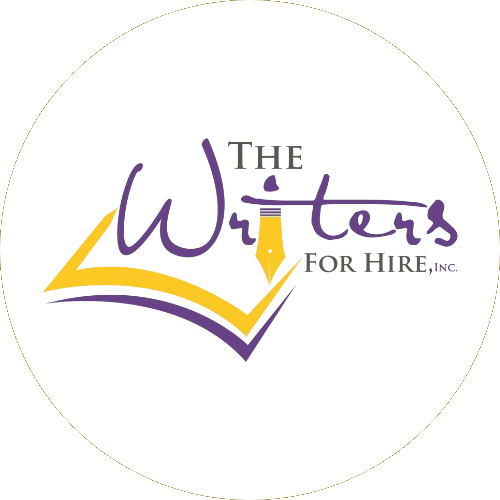Getting It Right: A Content Marketing Writer’s Guide to Navigating Copyright, Fair Use, and Public Domain
May 17, 2024
As content marketing writers and content strategists, we often need to reference material found elsewhere. Decades ago, that material would have come from tangible sources: books, newspapers, magazines, photographs, and more. Writers have always borrowed not only words but images.
Twenty-first century technology has brought an entirely new set of problems when it comes to a content plan and, specifically, to copyright issues. We see so much content recycled online that we might assume it’s just all there for the taking. However, legally, it’s not.
The internet has made some of the legalities around copyrights murkier. Many rules remain the same, though new technologies like artificial intelligence (AI) bring in new issues to consider closely. In general, what we find on the internet is not “free” to use for our content strategy—at least, not all of it.
Everything on the internet was created by someone, and that work is intellectual property. And like any other property, intellectual property is protected by our country’s copyright laws.
In this post, we’ll examine what a “work” of intellectual property actually is, what copyrights are, and what Fair Use means.Finally, we’ll examine specific instances of determining fair use in regard to text and images and, to some extent, AI-generated content, though AI issues are still working their way through the courts.
First, what is a “Work”?
Under United States copyright laws, just about anything you make is constituted as a work. Literary works, for one. That includes the obvious text artifacts like books, essays, newspaper articles, poems, and now blogs and even social media posts.
Works span more than words. Films, music, computer code and programs, paintings, sculpture, architecture, and choreography are all “works,” as are podcasts, webinars, and even advertisements. Three criteria determine if a work can be protected:
- First, it must be original—a new work from the owner or creator that’s not a copy or a scan.
- Second, it must be fixed, which means it’s in a tangible medium of expression that can be saved by being written down, recorded, or digitized. This makes blog posts and even social media posts “tangible mediums.”
- Third, it must be creative, demonstrating a minimal amount of creativity.
As content writing services, we’re constantly making protected work, and it remains protected even if it’s posted on the internet. The way our works are protected is through copyright.
What is Copyright?
Copyright, as early American legislators envisioned it, honors both the interests of the content creator and the public’s right to access information and freedom of expression.
As a creator, you have your own interests; you want your work to be published, for example, and to generate an income for you. What you write contains information, and the public wants access to that information.
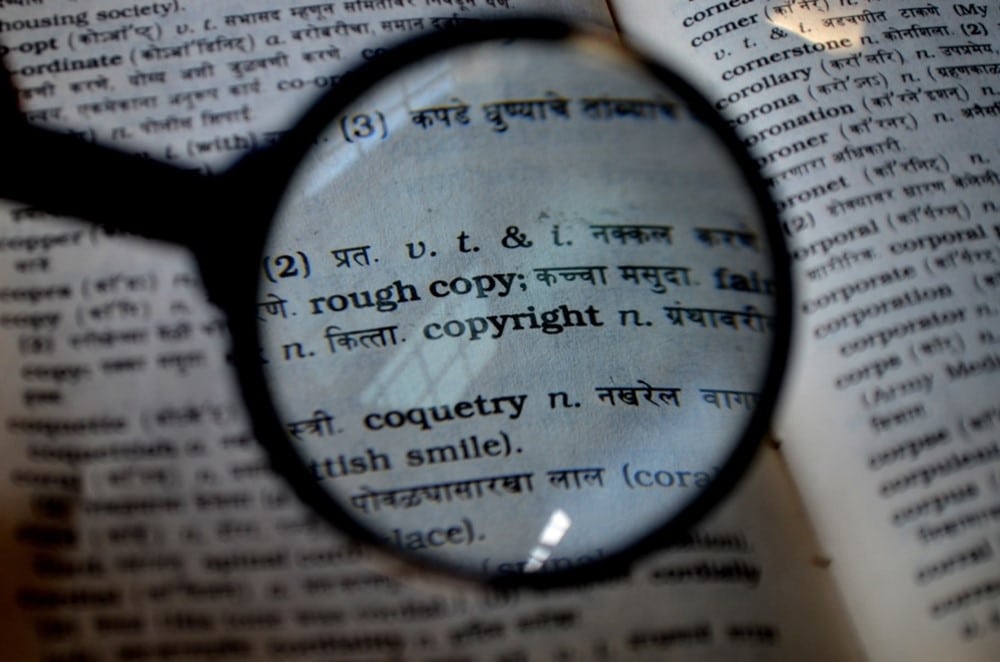
The public also may want to expand on your work—adding to it, which really means adding to the common knowledge through freedom of expression.
Copyright preserves all this so that the country can become a marketplace of ideas, art, and information.
The U.S. Copyright Act was first created in 1790, but the basic framework used today is the Copyright Act of 1976. The dictates of that act tell us, as content marketing writers, what we can use with and without permission.
For works published after January 1, 1978, the copyright is the life of the author plus 70 years; that is, the work remains copyrighted for the entirety of the author’s life plus 70 years from the date of their death. Much of what we use today as content creators will rely on works in this category.
Work created before 1978 is eligible to be protected for 28 years with the possibility of renewal.
Eventually, copyright expires. When that happens, the work is now in the “public domain,” meaning it belongs to the public and anyone can use it (though it might be good to attribute where it came from for the sake of ethics).
Copyright protects intellectual property, which must be creative, original, and fixed. An important distinction is that the underlying idea or concept of a work is not protected, only the tangible work built from the idea such as books, videos, photographs, images, and blogs.
In other words, what you think is not protected, but what you make is.
In addition to ideas, what is also not protected by copyright are things available to everyone: facts, common knowledge, methods of operation, or the news, to name a few.
Both for yourself and the work you wish to use for your content plan, begin by understanding the rights afforded to creators.
The Rights of Creators
Copyright law affords basic protections to content creators, giving you the right to distribute and reproduce your work; to create other works based on an original work (think Harry Potter movies, or assembling previously published essays into a book); and to display, sell copies, and perform the work in public.
The economic rights afforded content creators affect your ability to make money off your work through reproductions or copies of the work, either in public or in print.
This includes allowing others to perform the work in public; adapt the work (as in translating it to a foreign language); allow derivative works (like the Game of Thrones series or Lego sets); and publishing the work, including broadcasting on television, radio, and internet streaming.
If the work is digital, you are entitled to “e-rights,” which are much the same: You have the right to reproduction, the right of display, the right of making a work available (putting a post on a blog, for example), and the right of telecommunication to the public, which means sharing the work digitally through a network like the internet, or a podcast app, or Spotify.
How is a Work copyrighted?
Once a work is created, by law it’s automatically copyrighted. As a writer, I was taught that “the minute your pen leaves the paper, it’s copyrighted.” You do not, as you would have before 1979, need to register a work with the U.S. Copyright Office in order to be protected.
However, if you do register a work with the copyright office, this assures you can benefit from the work economically and allows you to sue for copyright infringement.
Although you’re not required to formally register a work, which involves documentation and paying fees, you can further protect your work by using the copyright symbol with your name and year of creation: for example, © 2024 Sean Hill.
If you post online, include: your contact information so others can obtain permission to use your work, the year the copyright pertains to, and the phrase “All Rights Reserved.” With images, you can use a watermark; it’s against federal law for anyone to remove it.
Formally registering a work with the U.S. Copyright Office allows you to have public documentation of your copyright.
That way, you can file an infringement lawsuit in court and also collect statutory damages and attorney’s fees if you win in a case of copyright infringement.
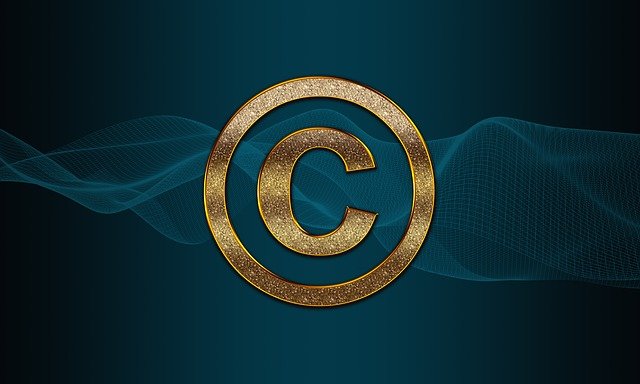
When a work is copyrighted, anyone else must get permission to use that work in any form—to publish, perform, or post. It’s a federal crime to use another’s work without their permission.
All of this being said, you can use the work of others—and remember that this is part of the idea behind copyright—if the following applies: the dissemination of knowledge to advance the interests of the country. In this case, all that’s required is for you to attribute where the work came from.
To use a work, in print or online, you have to first determine if the work requires permission to use. This is also where the ambiguity begins.
First, let’s talk about fair use. How you use another’s work largely determines whether you need permission at all, especially with text.
What is Fair Use?
Fair Use permits unlicensed use of copyright-protected works in certain circumstances. This caveat—in theory, at least—promotes freedom of expression and creativity.
The issue with fair use is about freedom of expression. To what extent can I use someone else’s work as a way to express my ideas as a content marketing writer? I can, but I have to be careful what I use and how much.
Whether something is constituted as fair use is decided on a case-by-case basis. Here are the points that determine free use:
1. If a work is used for criticism, critique, or evaluation, including for educational purposes, this is fair use.
Using a text in a classroom or using parts of a novel in a book review, for example, are fair use.
If you significantly transform a work by “making it your own,” this too leans toward fair use—but it has to be creative and original, too. However, using a work for commercial purposes is problematic: If you are making money off someone else’s work, that’s going to strain the idea of fair use, and that will typically require licensing.
2. If you use material from a non-fictional work, which is what a content marketing plan tends to use, it leans toward fair use because as an author you can build upon prior work and knowledge to expand a certain field—academic, professional, or otherwise.
Using material from a science textbook, for example, to add to your own science text can be fair use.
In addition, published work is generally favored by fair use, but not unpublished work.
3. How much of the copyrighted work are you using in your own work?
The less you use, the more likely it favors fair use. In a shorter work, like a blog, you can use a sentence, not a paragraph; or, perhaps in a longer work like a book, you can use a paragraph, but not a chapter.
The substance also matters: If what you are taking is the most important thematic elements of a work, this stands in opposition to fair use. So, the relative importance of what you take matters, too. Steer clear of the main points of a text, as that can affect the original author’s rights—for example, to benefit economically from their work.
4. What effect will your use of a work have on the market or value of the copyrighted work?
If it impedes the original creator making money off their work, that’s a problem. If your use causes harm to the author’s economic rights or the author’s intended use of the work, that’s equally problematic. Fair use will not intrude on the original creator’s efforts to make a living from their work.
Anything else risks being deemed copyright infringement.
All said, these points should not scare anyone off from using another’s work. Here’s how to do things the right way.
Properly Using Other People’s Works: How to Follow Fair Use
Begin by confirming the status of the work you want to use or cite. If the work is in the public domain, no permission is required.
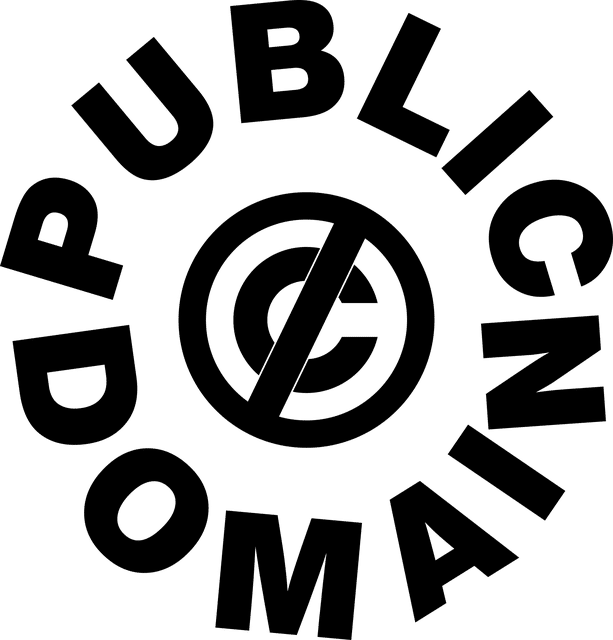
Works in the public domain have expired copyrights, or even never had them in the first place.
Many things published on Wikipedia, for one, will say outright if a work (usually images they post) are in the Public Domain.
The next step is to determine if the work has a copyright notice. If it does, reach out to the copyright owner for permission.
Note that only the current copyright owner can grant permission—and that may NOT be the original author!
At that point, you’ll need to contact the copyright owner and provide them with the author, title of the work, copyright date, and what use you intend to make of the work.
Let’s look at how to use individual works.
Using Copyrighted Text
Assume that any text on a page or online is copyrighted, unless it specifically says that the text is in the public domain or is offered through the Creative Commons. If you use an original passage from someone’s work as a direct quote, you need to do more than enclose the passage in quotation marks. You must use the proper attribution. Give full credit to the original source.
As Jessica Malnik points out in the Writer’s Room blog, you use a quote when you want to establish credibility by using the words of an authority, to share a meaningful and memorable passage, as well as to expand on or even argue a point. Refer, in any case, to the style you are using: MLA, APA, or Chicago.
Finding a Photo Copyright
Images is where things can get tricky. The internet is full of images, but you need to determine if the image is copyrighted.
Ana Mireles of Shotkit wrote a blog on steps to verify an image’s copyright and avoiding legalities. She offers techniques to check an image’s license, some of which are obvious, some not.
If an image is in the Public Domain, it will usually say so and, as with text, it belongs to the public and can be used by anyone. If an image says All Rights Reserved, it means you must get permission to use the work.
Look for credit or contact details for the artist, which may be in a caption, at the bottom of a page, or somewhere on the website. Any new image found on the internet will more than likely be copyrighted.
Some images will have metadata—also called EXIF data—that will include the author’s name, who handles the copyright, or a copyright registration number. You can check the metadata easily on both Windows and macOS. (Paula Beaton on Online Tech Tips also explains how: https://www.online-tech-tips.com/computer-tips/5-ways-to-check-an-image-for-copyright/)
You can also do a reverse image search on a number of websites, including Google, Bing, TinEye, Pinterest, Getty Images, and a number of apps. You’ll also find online copyright checkers like Filestack or PicDefense.
Watch for copyright symbols and watermarks—and keep in mind that watermarks are illegal to remove. You can also check the U.S. Copyright Office database, but many new photos are not registered (remember, it takes paperwork and fees to do that).
The easiest workaround is to use image licensing platforms, including paid ones like Shutterstock and Getty Images, though you have to pay attention to their “terms of use,” and make sure of the licensing: Is it for commercial or non-commercial use? Platforms like Pexels or Pixabay also offer free image use.
Copyrighting and Interviews
The Stanford University Libraries has a Copyright and Fair Use page specific to interviews, and some of those norms are good to consider.
It’s unusual, the page reads, for writers and reporters to get signed interview releases. Many interview subjects forego that anyway—they’re busy, and the writers are working on deadline, so we assume that the interviewee’s agreement to do the interview at all is a form of consent.
If a writer does use an interview release, it can avoid copyright infringement since the words spoken by an interview subject can be copyrightable.
In any case, an agreement can be made between the interviewer and the interviewee, and at the very least it can be a simple written or even oral consent on an audio recording.
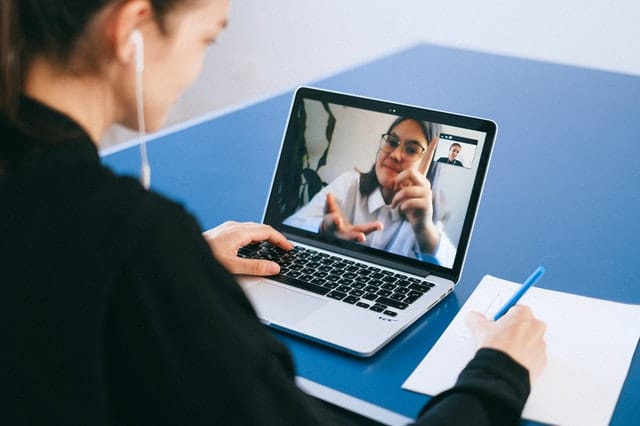
Much of what Stanford says refers to long interviews, or interviews that are verbatim, written in the Q&A format. For short quotes, it may be more viable just to ask the interviewee for consent and have them either write or record their consent.
Issues Around AI Copyright
AI opens up an entirely new dimension of issues with copyright for content strategists. The first question is: Can AI material be copyrighted? So far, the answer is actually no.
In 2018, the U.S. Copyright Office received an application for a visual work created by a computer algorithm. The application was denied—and after a series of appeals, was fully denied—because it was made “without any creative contribution from a human actor.”
This is an important point on copyrighting: The United States holds that in order to be considered a “work,” it must be created by a human being. Period.
In February 2023, however, the U.S. Copyright Office copyrighted a graphic novel with human-authored text, but images generated by Midjourney. What the Office determined was that, as a whole, the graphic novel was composed and assembled by a human being. Interestingly, though, the individual AI-generated images could not be copyrighted by themselves.
The thinking is this: A human being can come up with a prompt for AI. But the tangible product—whether text or image, both of which can be “fixed” by being published online, for example—was not created by a human being but by a machine.
Certainly, AI images can be downloaded from free platforms, granting the content creator a license to use it. But whether they will ever be afforded a “copyright” will likely take years to determine.
What can be used by content writing services?
In the final analysis, anything can be used for content creation—so long as you obtain permissions where attribution is due.
If something is in the public domain, it can be used outright without permissions, but if it’s copyrighted, you must obtain permission and/or a license to use the material, whether a photo, graphic, paragraph, or video clip, especially where not covered by the Fair Use doctrine.
Any content writing service can have established norms, so that the content strategist, and the content marketing writers, as well, can craft a content plan that simply follows the law and doesn’t open the organization to charges of infringement.
